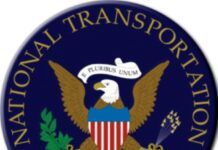Can Order FAA To Pull Certificates…
If he wants to, Transportation Security Administration head Adm. James Loy can now have your airman’s certificate pulled, or prevent you from obtaining one — and he doesn’t have to tell you why. For now, it seems you’ll just have to trust TSA officials when they say that the new rule that makes it possible is only a “technical change” and it’ll only affect you if you pose a security threat. “If you’re not a threat to aviation security, this doesn’t have anything to do with you,” TSA spokesman Brian Turmaile told AVweb. Mind you, the exact definition of a security threat you may find a bit … undefined. Such is the bureaucratic morass that had EAA and AOPA analysts burning the midnight oil Thursday when they got advance notice the FAA and TSA were going to ram through a major change to airman certificate revocation rules, without the advance notice and public comment period that more often precedes final adoption of a new rule. The new rule, termed Ineligibility for An Airman Certificate Based on Security Grounds, was published in the Federal Register on Friday and immediately became law.
…TSA Calls The Tune…
Under the rule, the FAA will immediately suspend the certificate (or hold the relevant certificate applications in abeyance) of a pilot, mechanic or flight instructor the TSA deems a possible security threat. Grounds for suspicion include posing a threat to transportation or national security, a threat of air piracy or terrorism, a threat to airline or passenger security, or a threat to civil aviation security. If the TSA Assistant Administrator for Intelligence suspects a certificate holder of any of the above, he fires a letter off to the individual and the FAA and the certificate is suspended as soon as the letter is received by the FAA — no questions asked. If the certificate holder is a foreign national, this “Initial Notification of Threat Assessment,” along with any reply from the airman, will also be reviewed by the TSA Deputy Administrator before a final assessment is made. For U.S. citizens, if the Deputy Administrator upholds the allegations, the matter must also be presented to Loy himself, who then makes the final determination. Defending yourself against the allegations might present a challenge, however, considering that some of the evidence against you may be “classified” or “sensitive” and therefore unavailable for viewing.
…New Rule Justifies 11 Already Suspended…
So far 11 certificates, which have long since been revoked, seem to be the only targets of the rule. Last Aug. 14, the TSA told the FAA that 11 people it suspected of being security threats had FAA-issued airman certificates and asked that they be revoked. On Aug. 20, the FAA issued “emergency orders of revocation,” which took effect immediately. On reviewing the method by which the certificates were pulled, Turmaile said TSA lawyers recommended changing the process. FAA spokesman Greg Martin said none of the 11 certificate holders is a U.S. citizen and none of them is even allowed in the U.S. “We needed a formal reimplementation of a rule,” said Turmaile. “It’s a technical change.” The text of the rule itself implies its establishment doesn’t require any justification. “This rule thus codifies the fundamental and inherently obvious principlethat a person who poses a security threat should not hold an FAA-issued airman certificate.”
Nevertheless, seven have appealed the revocation order and three of those appeals are still under review. Turmaile refused to identify them and said no information will be released about them or anyone else on another list of other security-threat suspects who will be denied certificates if they apply. “I can’t give out the size of the list,” said Turmaile. He said security control over airman certificates has always been on the TSA agenda and it was given that mandate when it was created under the Aviation and Transportation Security Act. For the past year, he said the TSA has been busy hiring baggage screeners and overseeing the installation of bomb detectors at major airports and the certificate issue just rose to the top of the pile.
…Alphabets Worry There’ll Be More
EAA and AOPA reaction was swift and centered on the possibility of abuse of the new rule. “We at EAA understand the mission of TSA but the process, as written, leaves room for abuse by those in the future who may not exercise the proper due diligence,” said EAA President Tom Poberezny. He said there is no clear definition of what constitutes a security threat and noted the lack of access, by the accused, to any classified documents used to justify the certificate revocation. Both groups worried that the TSA has the sole authority to adjudicate a certificate holder’s appeal. “With all due regard to national security, we’re deeply concerned that the rules appear to permit taking away a pilot’s license without an independent review,” said AOPA President Phil Boyer. Both groups were miffed that the rule was enacted without public notice and the customary 90-day period to receive comments that almost always precedes this type of action. The rule was also apparently a well-kept secret within the FAA, too. Even the media relations staff didn’t find out about it until about the same time EAA and AOPA got their advance copies. But the rule itself says there is a “possible imminent hazard” and that giving notice might “delay the ability of the FAA to take effective action” to pull the certificates of those on the TSA list. Instead, the comment period follows enactment and comments can be made online at the DOT’s docket-management Web site, citing docket numbers TSA-2002-13732, TSA-2002-13733, and FAA-2003-14293.


































